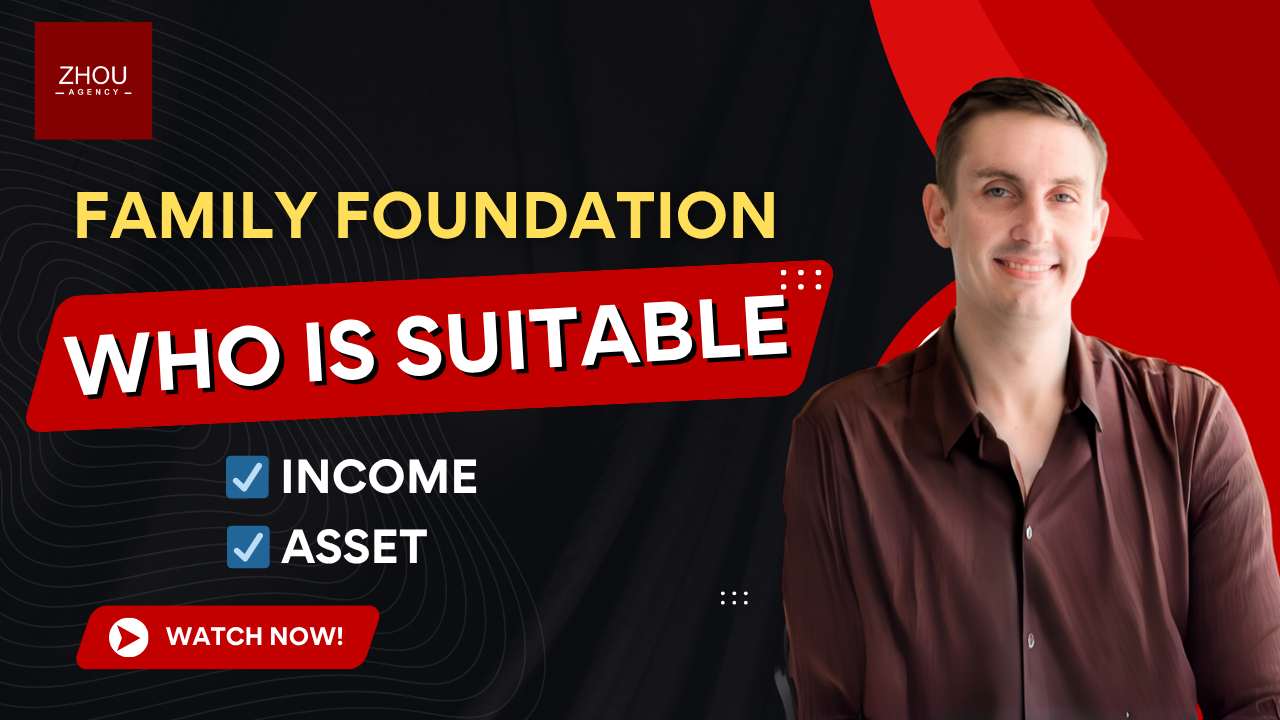Who is Suitable for a Family Foundation?
When people first hear about Family Foundations, many assume they’re reserved for billionaires or old-money families. The truth is, Family Foundations are not just for the ultra-wealthy — they can be a smart, impactful tool for any high-income individual or family looking to give back and save on taxes at the same time.
So, how do you know if you’re a good fit to start one? Let’s take a closer look.
Who Can Set Up a Family Foundation?
Here’s the short answer: anyone over 18 can establish a Family Foundation in the U.S.
Think about it — a Family Foundation is simply a charitable organization that receives funds and donates to causes you care about. The IRS has no reason to object; in fact, it encourages philanthropy. Even non-U.S. citizens can establish foundations here — the U.S. welcomes charitable contributions from around the world.
That said, just because you can start a foundation doesn’t always mean you should. Once your money enters the foundation, it no longer belongs to you personally — it belongs to the charity. If that thought makes you uneasy, or if giving back doesn’t align with your personal goals, that’s perfectly okay. Many people choose to simply pay their taxes and focus on other priorities.
But if you’re passionate about creating positive change and want to make your giving more strategic and tax-efficient, a Family Foundation could be a great fit.
When Does a Family Foundation Make Sense for Tax Savings?
Let’s be realistic — while many people start foundations out of genuine philanthropy, tax planning often plays a role. To understand when it makes financial sense, it helps to know how U.S. taxes work.
The U.S. has a progressive tax system: the more you earn, the higher your tax rate.
Household income under $100,000: Your marginal tax rate is roughly 12%. Saving taxes here doesn’t yield a major impact — reducing income by $10,000 saves only about $1,200.
Income between $100,000 and $400,000: The marginal rate jumps to around 22–24%. At this level, tax planning starts to make more sense.
Income over $500,000: Your rate can hit 35–37%, and if you live in a high-tax state like California, the total can reach 40–50%. That means earning an extra $10,000 might cost you nearly $5,000 in taxes.
At this stage, tax savings become not just useful — but essential. A Family Foundation offers one of the most efficient ways to redirect tax dollars toward causes that matter to you.
Assets Matter Too
Income isn’t the only factor. Your asset structure and financial stability also determine whether you’re ready to establish a foundation.
A young family earning $400,000 but still building savings, buying a home, and managing expenses may find it premature to donate significant amounts. On the other hand, someone nearing retirement with stable income, strong savings, and other investments may find it both meaningful and strategic to set one up.
As a general guideline, having around $500,000 to $1 million in disposable assets provides a comfortable starting point for establishing a foundation without straining your cash flow.
Beyond Taxes — Building a Legacy
While tax efficiency is a clear advantage, the greatest value of a Family Foundation often lies in its long-term impact.
One of our clients, for example, started a foundation and appointed their college-aged child as president. That experience not only built the child’s leadership skills but also deepened their sense of social responsibility — benefits that extend far beyond financial planning.
A foundation can become part of your family’s story, teaching future generations about philanthropy, community impact, and legacy.
The Bottom Line
If your household income exceeds $500,000, or if you have substantial assets and want to make your giving more purposeful, a Family Foundation is worth serious consideration.
It’s not just about saving taxes — it’s about channeling your success into something that lasts. Whether your motivation is giving back, creating a legacy, or reducing your tax burden, the right foundation structure can help you do all three.
Consult A Tax Professional
If you are seeking tips & assistance to set up your family foundation, you could contact us to request a free consultation session by clicking the button below. We serve clients across different states of the U.S. and outside of the U.S., so we would love to provide you with the help you need!
This post is to be used for informational purpose only and does not constitute legal, business, or tax advice. Each person should consult his or her own accountant, attorney, or business advisor with respect to matters referenced in this post. Zhou Agency assumes no liability for actions taken in reliance upon the information contained herein.

